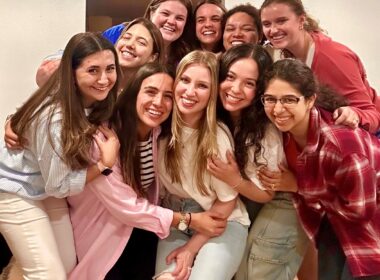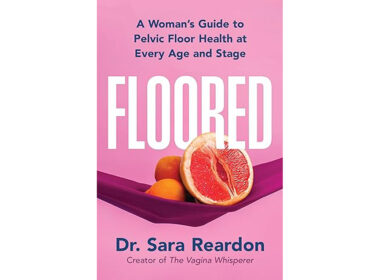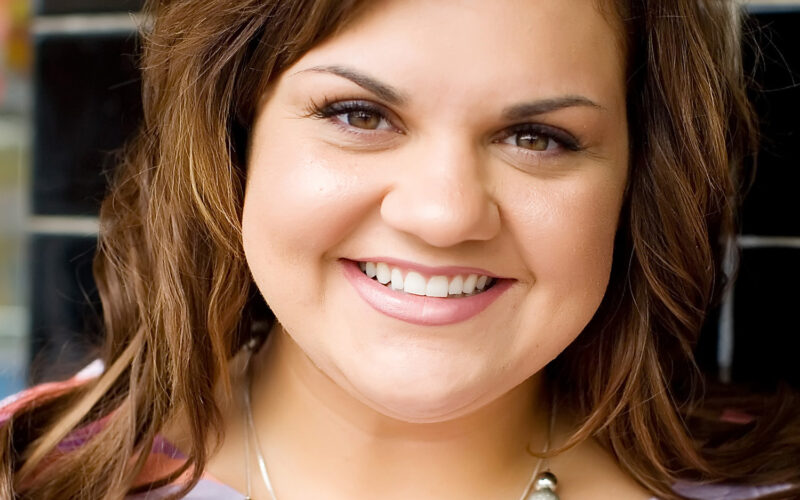Abby Johnson, a former director of a Planned Parenthood clinic, has personal and professional experience with hormonal contraception. She is also the author of Unplanned: The Dramatic True Story of a Former Planned Parenthood Leader’s Eye-Opening Journey across the Life Line and founder of And Then There Were None, an organization that assists abortion-clinic workers seeking to transition out of the industry. In anticipation of her keynote at Natural Womanhood’s Gala on November 8 in San Antonio, Natural Womanhood enjoyed a rare conversation with Johnson on her experience with hormonal contraception and how she came to view it as incompatible with women’s health. Part I of this interview was published in September. In this Part II of our interview with Johnson, she explains what sets Natural Family Planning (NFP) apart.
Mary Rose Somarriba: How did you get introduced to NFP?
Abby Johnson: With our Napro doctor, my husband and I started learning NFP and we loved it; for the first time ever I was realizing that all of my bodily systems were connected, and this made so much sense, and it was so affirming to know my body and not just to suppress things, but to allow them to happen in the way that nature and God intended. So really it was my frustration and my anger that really fueled me to learn NFP and become an NFP advocate, that fertility is a gift we’ve been given, and that you don’t have to have 19 children if you choose not to have birth control.
Then I decided that I wanted to become an instructor for NFP, so that I could help other women, and help them how to figure out how to heal their bodies, because almost all the couples I was seeing had been on contraceptives, and were damaged from it; their relationships were damaged from it.
I had a lot of anger back then. I have more understanding now. Our society as a whole has just not been given the proper information, and physicians have not been given proper information, and they’ve also been sold a bill of goods, that contraception is the solution to women’s health problems. So we have to empower women and couples to be their own advocates. To stand up for their health and their marriage and their bodies and to say I deserve better than what you’re trying to give me.
It’s a shame that we have to do this, but we have to.
MRS: I see PP now has mentions of FABMS on their site. When you worked there, was there any talk of educating people about FABMS?
AJ: No. I have heard that they started giving out cyclebeads, which is similar to the rhythm method. I think the whole point of it is to say “well we have given women this option and they got pregnant on it, and so clearly it doesn’t work.” Instead of actually using scientific methods that have been proven to be effective. They’re literally passing out plastic beads and saying “this is NFP.”
MRS: You’ve become known for overhauling an outdated image for the pro-life movement and rebranding it as pro-woman and pro-love, to the point where Buzzfeed favorably covered your latest conference. How do you think FABM educators can better reach modern women today, in an age when contraception is promoted as a good and PR is funded by huge pharmaceutical companies and profitable businesses like Planned Parenthood?
AJ: I think people, rightly so, look at NFP and think it’s a religious or Catholic thing. We have to do a better job of marketing this method on its scientific basis. It is a scientific method for either achieving or avoiding pregnancy. We live in modern times when everyone wants everything organic, free-range chicken, and yet these women who demand organic tomatoes are using birth control every day. So I think if we can label this as an organic method of family planning—that is very attractive to the modern women.
If you go to a woman and say, “don’t you want to experience the marital embrace without barriers with your husband,” that sounds so cheesy and ridiculous to many people. We have to figure out, in our own language in the NFP world, how to talk to women who want to avoid pregnancy, while still helping them understand that this isn’t contraception. Gently diving into that perspective and really listening to women.
I’ll just say, even some wonderful wonderful Napro NFP doctors that I know; sometimes they’re not really listening to women who are coming in. On one visit, I was talking about libido issues and my doctor told me I need more romance. And I was like “no, I have a physical thing, something is going on with me,” and he completely dismissed me out of hand. We can’t be guilty of that either, just blowing women off, falling into the trap of auto-prescribing same formula for everything, like contraception supporters do. We need to listen to women’s stories, and do the proper testing, and walk with them on their healthcare journeys.
MRS: How have you seen NFP help relationships?
AJ: NFP doesn’t have to include both the man and the woman; I’ve known women whose husbands are just not interested, it can be used with just the women being involved. But for the most part, the beauty of NFP is that fertility becomes a shared experience.
I remember when I was pregnant the first time. When I told my boyfriend I was pregnant, he said, “how did that happen, you were on birth control.” And that’s a real response that many women get from men in their lives: how did that happen?
NFP makes fertility shared. And that’s how fertility is meant to be, it’s not meant to be the sole responsibility of one person, and that’s unfortunately is what second- and third-wave feminism has done to women. We are now saddled with the responsibility of things that are meant to be shared between a husband and wife. Everything then is placed on our shoulders, because that is supposedly what women want, because we want everything to be us vs. them. That’s not the way that it’s meant to be. And that’s not the way feminism is meant to be either. Feminism should have room for a complementarity of the sexes, and that’s exactly what NFP is. It allows a complementary exchange between a man and a woman. That’s the way it was meant to be all along.
MRS: What last words would you like to leave with women considering FABMs?
AJ: NFP has changed my life, and now I want to spread the word to help other women in their health journeys. After contraceptives, I was infertile; but within 8 months of working with a physician who understood NFP, we conceived our son, Alex.
Even if your fertility can’t be healed through various interventions, I believe it’s still a great way to learn about your reproductive health—how our systems are all connected and work together. The human body is truly amazing! And there are so many great forms of NFP out there. I’m confident there is at least one out there for you—Billings, Marquette, Sympto-thermal, Family of the Americas, FEMM, Creighton—so many modern, evidence-based options to choose from! I believe, because of my own experience, women need more information and options on fertility awareness, so they can make truly informed reproductive choices.







